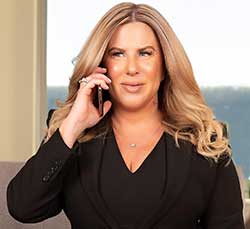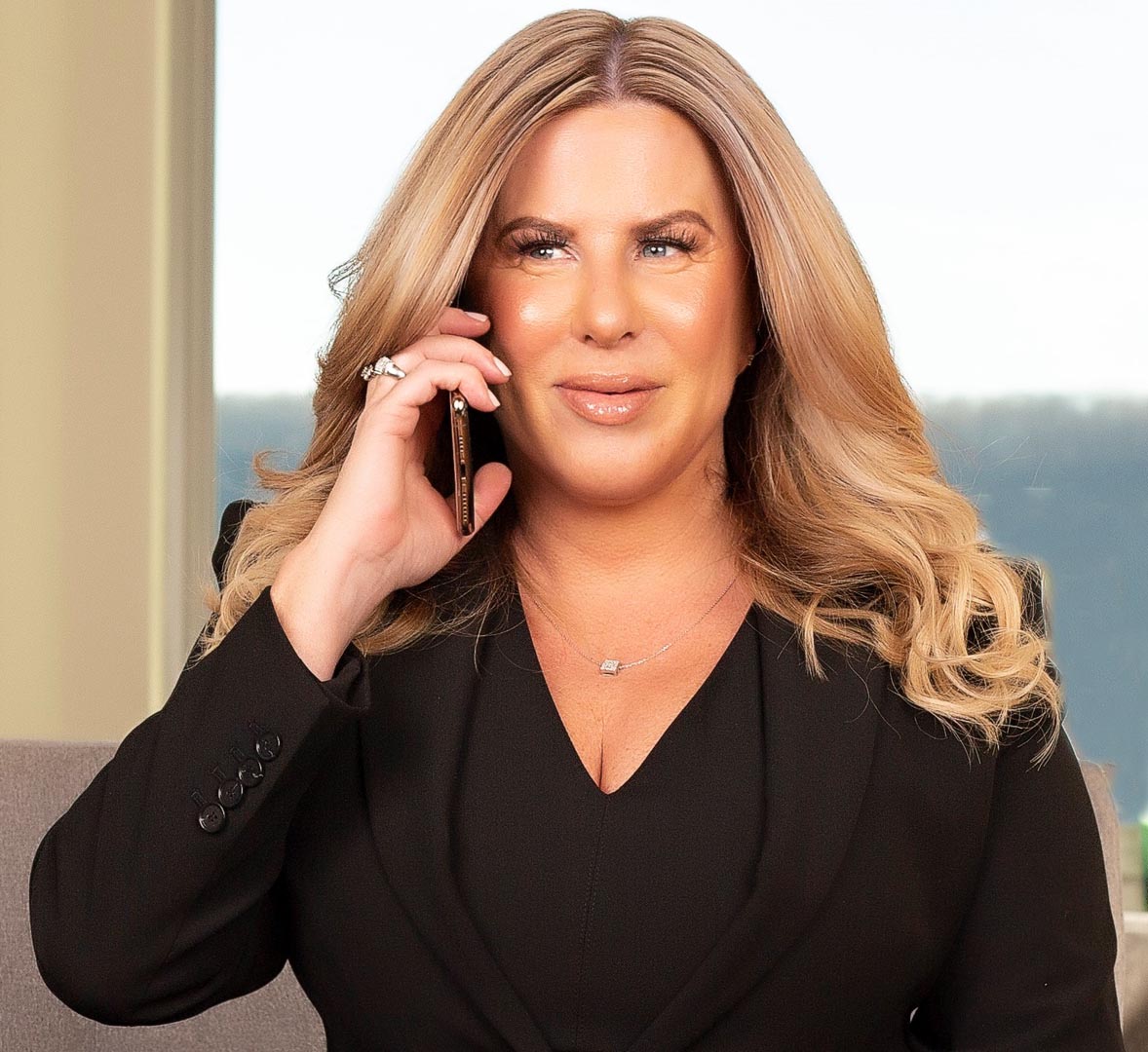White Plains Gender Discrimination Lawyer
Gender discrimination and sexual harassment in the workplace — at any point in the employment process, from interviewing through termination — is strictly illegal. This includes the right of workers to receive equal pay for the same work, regardless of gender. In the state of New York, these employment discrimination protections are not only available to employees, but are also granted to independent contractors and certain other classifications of workers.
Employers who engage in sexual harassment and other forms of discrimination based on gender can be held liable for significant monetary damages, including lost wages, compensation for emotional distress, and payment of attorneys’ fees and other legal expenses. In some cases, an employee can even be reinstated to their former position, if desired. These damages are available as a result of several federal, state, and local laws that recognize the rights of workers to be free from discrimination and unfair or disrespectful treatment by a manager, supervisor, or co-worker that is in any way based upon their gender.
White Plains, NY based employment lawyer, Claudia Pollak, explains that “gender discrimination in New York can take many forms, but the discrimination must in some way be based on or relate to the worker’s gender, including their sex, pregnancy status, sexual orientation, or transgender or nonbinary status.”
In addition to unequal or unfavorable treatment that is based on an individual’s gender, sexual harassment by a co-worker or a manager is one of the most common forms of gender discrimination. Sexual harassment involves unwelcome behavior of a sexual nature that is directed at an employee, including unwanted physical contact, inappropriate close physical proximity, sexual advances, asking personal questions, and unwelcome exposure to sexually-explicit discussions and sexual materials, such as pictures and video.
Employment lawyer Ms. Pollak recommends that “employees and independent contractors who believe they are experiencing sexual harassment or other forms of gender discrimination in the workplace carefully document all instances of discrimination, including noting the date, time, location, persons present, and any inappropriate actions that were taken by their employer or statements that were made by a co-worker or supervisor.” If the discrimination continues, she recommends contacting an employment attorney for further guidance (book a free consultation with a Westchester County employment attorney).
Sexual Harassment and Gender Discrimination: Frequently Asked Questions
What is Sexual Harassment in New York?
Under the New York State Human Rights Law (NYSHRL), sexual harassment in the workplace includes unwelcome, harassing conduct of a sexual nature that is directed at an employee or independent contractor because of their sex. This unwanted behavior interferes with the target’s work performance and typically results in an intimidating, hostile, or offensive work environment. Sexual harassment can even exist in situations where the worker that experiences and reports the offensive conduct is not the intended target of the harassment, but is nevertheless impacted by their unwanted exposure to the sexually-harassing behavior.
What is the Definition of Gender Discrimination in New York?
Gender discrimination includes any unfair, harassing or unequal treatment directed at an employee or contractor because of their gender. Women, men, and members of the LGBTQ community can all experience this type of discrimination. In addition, harassers can be of the same sex or a different sex as their victims, and can span all power structures in the workplace. For example, a supervisor can discriminate against their subordinate, or an employee can discriminate against their co-worker.
How is Gender Defined in New York?
According to the New York State Division of Human Rights, “gender” refers to a “socially constructed system of categorizing people according to a range of characteristics often associated with masculinity or femininity.”
What Is A Hostile Work Environment Based on Sex?
Sexual harassment often creates a hostile work environment for the worker targeted by the harassment. Harassing conduct that creates a hostile work environment includes the use of offensive words in the workplace, the display of sexual material such as nude pictures or pornographic videos or images, or telling “dirty” jokes.
What Are Some Examples of Sexually-Harassing Behavior at Work?
Examples of prohibited sexually-harassing conduct at work often involves unwelcome sexual propositions by a co-worker, manager or client; exhibiting pornographic materials at the office or workplace; exposure to sexually-explicit comments and gestures, and remarks that have the effect of humiliating or demeaning certain employees. Physical contact also commonly typifies sexually-harassing behavior, and can range from unwelcome touching such as hugging, kissing, pinching, or purposely brushing up against an individual or rubbing their shoulders, to physical intimidation and sexual violence.
What is Quid Pro Quo Sexual Harassment?
Quid pro quo sexual harassment occurs when the harassing conduct itself is made (whether directly or covertly) a requirement of employment. This type of sexual harassment results when a person in authority attempts to trade sexual favors for job benefits such as a raise or promotion or even to maintain their job without being fired. In this situation, an employee’s decision as to whether to submit to or reject sexual contact is tied to decisions about the terms of employment, such as their compensation, a promotion, or termination.
Can My Employer Be Held Liable for Sexual Harassment By Non-Employees?
Yes, under certain limited circumstances, employers can be held liable for the sexual harassment of their workers by third parties such as clients, vendors, or subcontractors. In New York, employers who are aware of the sexual harassment of their workers by non-employees, such as their clients, customers, vendors, suppliers or business partners, are expected to take action to address on the job harassment of their workers. If they do not, in certain limited circumstances, they may be held liable for a failure to protect their workers from discriminatory harassment.
How Do I Prove Sexual Harassment in NY?
Unlike some other jurisdictions, New York does not require an employee to prove that the sex-based discrimination they endured was “severe or pervasive” to be actionable. Nor are employees required to demonstrate that a co-worker in a similar position was treated differently based on their gender. Instead, workers need only prove that their employer offered them inferior terms, conditions, or privileges of employment based on their sex. However, employment lawyer Claudia Pollak notes that “sexual harassment or gender discrimination in New York does not include workplace exposure to “petty slights” or “trivial inconveniences.” In other words, she states, “a one-off comment by a co-worker, without any adverse employment action, is likely not going to be the basis of a winning discrimination lawsuit.”
Certainly, the more evidence that exists, the stronger the legal case will be. Additionally, working with a gender discrimination lawyer early on helps employees to understand which evidence to collect. Employees should document any harassing incidents that occur while on the job, and retain pay stubs, any emails, texts, or other communications to or from managers or human resources about the employee’s complaints, or which evidence discrimination, such as a denial of a promotion. Witness accounts should also be carefully documented.
Is Sex-Based Stereotyping at Work Illegal in New York?
Yes, it is unlawful to stereotype or segregate workers based on their gender. Unlawful gender stereotyping results when behaviors or personality traits are considered inappropriate by employers merely because they do not conform to stereotypical perceptions about the appearance or behavior of a particular gender. For example, prohibiting employees from wearing certain clothing based on their gender, or enforcing gender-specific uniforms. In addition, this can include the segregating of job duties in the workplace based on gender, such as limiting the female employees hired to perform a certain position to certain tasks, or only promoting the male employees to managerial positions because of preconceived notions about gender. Ultimately, the laws allow workers to be free to express their desired gender or nonbinary or transgender status without fear of recriminations because of workplace biases.
Can My Employer Pay Me Less Than A Man for the Same Work?
No, employers are prohibited from different wage rates based on gender. Under federal and New York state law, women and men must be given equal pay for equal work. If a female employee works in the same position as a male employee, but is paid less than her male co-worker for performing the same work and holds the same relevant skills, her employer has given her “inferior terms of employment” compared to her male colleague, which both gender discrimination laws and the New York Equal Pay Law.
What Workplace Rights and Protections Are Available in NY for Victims of Gender Discrimination?
Workers who are subjected to gender discrimination or sexual harassment can be quick to question their own concerns. Given the covert behavior that characterizes most types of discrimination and harassment, it can be tricky to spot and even easy to dismiss under the guise of plausible deniability. However, the trend for under-reporting of sex-based discrimination allows bad actors to continue harassing their work colleagues, and creates a vicious cycle where victims are suffering in silence.
To remedy this, several federal and New York state laws protect workers against gender discrimination. Under the New York State Human Rights Law (NYSHRL), employers of any size are prohibited from discrimination or retaliation as a result of a person’s gender. In contrast, the NYC Human Rights Law (NYCHRL) applies to employers with at least four employees, while on the national level, Title VII of the Civil Rights Act of 1964 is only applicable to employers with more than 15 employees. The discrimination laws apply to any stage of employment, including during the hiring process or probationary period.
Can Employers Be Held Liable for Unintentional Gender Discrimination?
Yes, discrimination protections include claims of disparate impact, where certain policies and practices result in discrimination even if they were not intended to be discriminatory. For example, implementing a policy mandating an unnecessary strength requirement for certain stereotypically-male job positions that prevents women from attaining these positions creates a disparate impact claim because it unjustifiably prevents women from being hired for the position.
Can I Sue My Mean Boss for Discrimination?
Whether or not a “mean boss” can be held liable under the employment discrimination laws depends on the particular situation, especially the intent behind a manager’s mistreatment. It is important to understand that “equal opportunity mean bosses” – who mistreat and bully all of their employees equally, regardless of their gender – are typically not liable under the gender discrimination laws.
Westchester County-based employment lawyer, Claudia Pollak, advises that “employees who are uncertain of what they are experiencing, but just know it feels inappropriate, should consult with an experienced employment attorney to get help in determining whether the incidents that have occurred amount to sexual harassment or other gender-based employment discrimination.”
Has New York Law Evolved on Sexual Harassment and Gender Discrimination?
In recent years, the New York legislature has strengthened the state’s protections for employees and independent contractors facing discrimination and retaliation in the workplace. Some key changes to New York State Human Rights Law include:
- Unlike the federal discrimination laws, all employers in New York state are subject to the requirements of the discrimination laws, regardless of their size.
- The New York State Human Rights Law now covers not only traditional employees, but also domestic workers and non-employees, such as certain independent contractors, vendors, subcontractors, consultants, and interns.
- The statute of limitations to file claims of sexual harassment with the New York State Division of Human Rights has been extended from one year to three years.
- Employees are not required to have previously filed an internal complaint with human resources or their manager before the employer can be held liable for gender discrimination or retaliation by managers and co-workers.
- For employers to be held liable in New York, the sexual harassment need not be “severe or pervasive” as is required under the federal discrimination laws, nor must the worker claiming discrimination prove that they were treated unfavorably as compared to another person of a different gender, sexual orientation, pregnancy status or transgender or nonbinary status. However, employment attorney Claudia Pollak explains that “the employer must, in some measurable way, subject a worker to inferior terms, conditions, or privileges of employment because of their gender, and the employer’s behavior must amount to more than just a “petty slight” or “trivial inconvenience” to be considered discriminatory.”
Is Gender Identity and Gender Expression Protected in the Workplace in NY?
Yes, in 2019 the New York State Human Rights Law (NYSHRL) was amended by the Gender Expression Non-Discrimination Act (GENDA) to explicitly include “gender identity or expression” as a protected characteristic of workers in New York.
“Gender Expression” means a person’s external appearance based on their chosen gender identity, including how they act, the clothing they wear, their chosen hairstyle, or the tone of their voice. Under New York law, people are free to express their preferred gender, and are not required to match their behaviors to those stereotypically associated with their assigned sex at birth.
“Gender Identity” describes a person’s self-concept with respect to gender, whether male, female, nonbinary, or transgender. It is unlawful to subject employees to discriminatory or harassing treatment because of these qualities and characteristics.
What Are Some Examples of Discrimination Based on Gender Identity or Gender Expression?
- Asking questions about the gender identity or assigned sex of an employee or job applicant.
- Denying the use of the restroom associated with a person’s gender identity or expression, or forcing a person to use a single-occupancy restroom because of their transgender status or as a result of their gender identity or expression.
- Demanding that employees conform to grooming standards or uniform styles stereotypically associated with their assigned sex at birth.
- Refusing to use a person’s requested name or pronouns.
- Terminating a person’s employment because of their gender identity or expression.
What Should I Do If My Employer Fails to Address My Sexual Harassment Complaint?
Under New York law, you are not required to lodge a complaint with your employer before filing a claim with the courts or appropriate government agency. However, it is usually a good idea to alert human resources, a manager or a supervisor about unlawful conduct so they can take steps to address the discrimination. If you fear that your employer will not act in good faith, or the discrimination has created a particularly harmful and unpleasant atmosphere at your workplace, you may believe it is too risky to complain internally without legal assistance. In that case, you should consult with an employment attorney about your options, including proceeding to file a complaint in court or with an administrative agency.
What Damages Are Available for Sex Discrimination Claim?
Courts in New York may award compensatory damages and punitive damages for prevailing claims of gender discrimination. Compensatory damages comprise out-of-pocket costs, like lost wages resulting from unfair pay or termination, and compensation for emotional harm, such as anxiety, depression or loss of sleep, that is induced by a hostile work environment. Courts can also award attorneys’ fees, court costs, and other litigation expenses if a worker prevails on their claims of discrimination or retaliation. An employer who has committed particularly egregious discrimination may also be required to pay punitive damages to the plaintiff. In contrast to federal law, New York places no cap or limit on punitive damages.


Claudia Pollak
Claudia Pollak, Esq. is an experienced Westchester and NYC-based employment lawyer representing employees facing discrimination, retaliation or wrongful termination because of their race, disability, pregnancy, sexual orientation, gender, or other protected characteristic. She also advises on executive severance agreements and restrictive covenants. Call her at 914-LAW-9111 (914-529-9111) for a free consultation.
Employment Discrimination
Employment Discrimination
Employees in Westchester County and other parts of New York state are protected from discrimination in employment based on a number of personal characteristics.
Sexual Harassment
Sexual Harassment
Sexual harassment at the workplace has always existed, but the #metoo movement has brought this ugly secret out into the glaring light of day.
Disability Discrimination
Disability Discrimination
Being disabled can impact individuals in several important ways. For a great many Americans, however, it does not prevent them from working.
Breach of Executive Employment Agreement
Breach of Executive Employment Agreement
Despite the existence of an enforceable contract, employers sometimes terminate an executive’s employment before the end of term, and in violation of the employment agreement.
Gender Discrimination
Gender Discrimination
There are many types of gender discrimination occurring in the workplace, including discrimination based on sexual orientation, pregnancy, or transgender or non-binary status.
Hostile Work Environment
Hostile Work Environment
Some of our most vulnerable populations are experiencing increasingly stressful employment situations. In fact, many workers in America (up to 1 in 5) feel they work in a hostile or abusive work environment.
Racial Discrimination
Racial Discrimination
While many businesses have openly acknowledged the problems of discrimination and inequity facing black workers in America as a result of the Black Lives Matter movement, racial discrimination still regularly occurs in the workplace.
Severance Agreements
Severance Agreements
Whether your position is being eliminated in corporate downsizing, or you are getting laid off or fired for another reason, at some point in your life you may find yourself reviewing a severance agreement.
Pregnancy Discrimination
Pregnancy Discrimination
The last thing you need when you’re starting a family – or growing one – is financial uncertainty or the stress and anxiety that comes from becoming the target of discriminatory treatment at work because of your pregnancy.
New York Equal Pay Law
New York Equal Pay Law
New York Labor Law §194, requires that employees of a particular establishment be paid a wage that is equivalent to the wages paid to employees of the opposite sex, or of a different race or sexual orientation, or who are members of any other class of employees.
GLOWING CLIENT REVIEWS
She puts the needs of her clients first.
Amanda Moody
Very knowledgeable lawyer. Very commendable.
Thomas Sauer
I connected with Claudia for assistance negotiating an employment agreement. Claudia was very responsive right from the start. Once we agreed to move forward, she worked over a weekend and we had calls on a Saturday and Sunday to be in a position to respond by Monday. Her detailed and thoughtful review was extremely valuable to me. She explained all of her rationale and provided me with a detailed response which I used. I am so glad I worked with Claudia and would highly recommend her services!
Salvatore Sama
I wish I could give her a million stars.
Lisa Smith
Its hard to find an attorney who cares about their clients. Well I did Her name is Claudia Pollack she was very fair with me. She provided the service I have never have gotten from any attorney. She is knowledgeable about the law and she explained to me every step of the way what she was doing and why. She had patient’s with me, pretty much held my hand and explained all my options.When Claudia says she is going to do something she does. Her communication level was super.Claudia whordked hard and fast and got the job done.Having hired Claudi I was able the have a lot less stress and most of all slept very well at night knowing that she was on my side
Steven Katz
![]()
I consider myself fortunate to have been introduced to Claudia, who performed flawlessly on my behalf in extremely difficult and trying conditions. As a senior level executive, my expectations for professionalism and service delivery are high and I can honestly say that Claudia went far above and beyond my expectations to represent my best interests. She is tenacious and fights for her clients rather than pursuing the path of least resistance. Her case preparation was extremely thorough and diligent. When combined with her experience and high level of competence in employment law, she is a formidable adversary to any employer, large or small, who exercises digressions in employment tactics. It is without reservation that I recommend Claudia’s services to handle any employment matter, large or small, that requires legal finesse.
Richard Hayes
TESTIMONIALS
Smart, knowledgeable and accessible. Claudia has expertly represented me since 2014 with several successful contracts negotiations.
Very knowledgable lawyer, very commendable.
She puts the needs of her clients first.
I wish I could give her a million stars.


